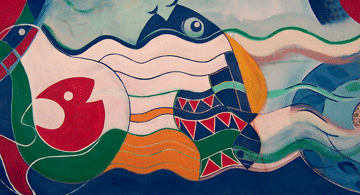
With reference to “Islamo-Fascism Awareness Week†(the week of October 22-26, 2007), it is alarmingly odd to hear that there persist to be individuals and so-called neoconservatives in university campuses who claim to be more knowledgeable than that the rest of society [and claim the right] to justify their prejudice against Islam and Muslims.
Instead of hate rhetoric aimed at teaching American students how to stigmatize Islam as fascist, the effort should be made to bring Muslim, Christian, Jewish and other religious communities together to increase dialogue, understanding, and peace. We have many examples of those who were misguided by naïve teachers before and after the tragic events of September 11. In his book, Silent No More: Confronting America’s False Images of Islam (Amana, 2001), former U.S. Congressman Paul Findley refers to his own experience with Islam since his early years in American schools. He (p. 19) points out that
“False stereotypes can hide the truth from people of any age. At the age of six, my introduction to Islam got off to a bad start. While attending Presbyterian School in Jacksonville, Illinois, I was misled about Muslims and their religion and I harbored the misinformation until middle age. Our teacher…told us that uneducated, primitive, violent people lived in desert areas of the Holy Land and worshiped a ‘strange God’. In one of my earliest childhood recollections, I remember that she called the Muhammadans and kept repeating, ‘They aren’t like us’… Her comments stuck in my memory. For most of my life I held a vision of Muhammadans as alien, ignorant, threatening people. Like many Americans today, my teacher innocently repeated misinformation she has acquired from other poorly informed people…I do not believe she intended to instill misinformation or defame Islam. She simply lacked the facts, as did other teachers and the ordained minister who led our congregation. The national offices of the Presbyterian Church U.S.A have since issued informed documents about Islam and the need for interfaith understanding. But repairing the damage of earlier times has only begun.â€
Repairing the damage and safeguarding against recurrent damage are actions that need to be taken on all sides, rather than fueling the fires of hate and revenge. Progress in this area of developing religious tolerance must not be hindered by poorly informed people or those with negative intentions. A Muslim chaplain in the US said, “I have recently seen a great deal of success in interfaith dialogue that I had not seen before September 11. After September 11, churches and synagogues were opened for Muslims to go in and celebrate their services.†Meanwhile,
Yvonne Haddad points out that Muslims and “Arab Americans fought with the American forces in World War I, World War II, Korea, Vietnam, and the Gulf War. Dearborn, Michigan, has a center for Veterans of Foreign Wars whose members are all Arab Muslims.†With so much blood shed, we need to emphasize the peace and tolerance that can be found in all the major faiths. Fascism wins when faith is weak. Interfaith understanding is the awareness we need all year round.
el-Sayed el-Aswad
University of Bahrain